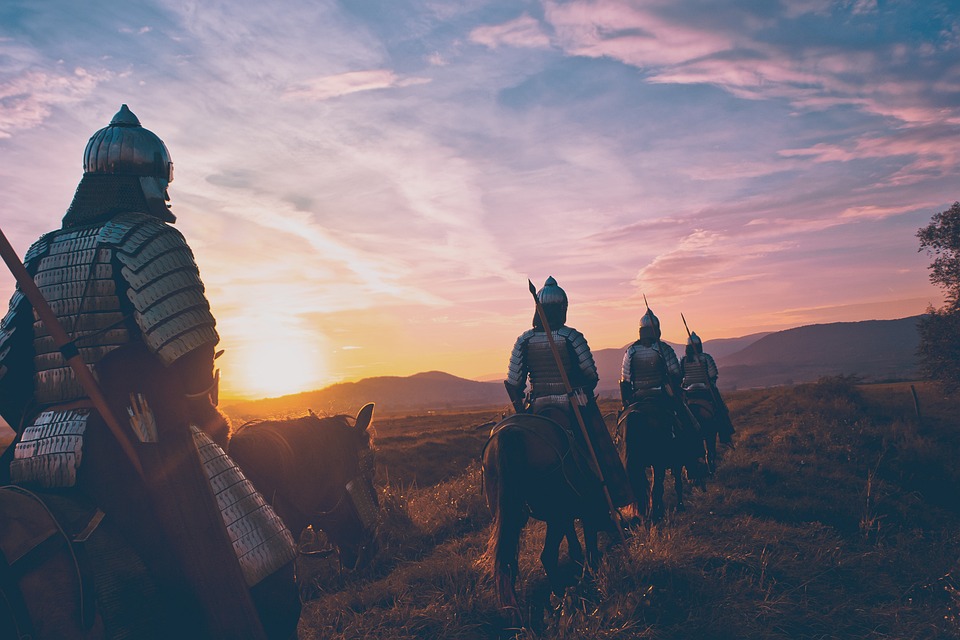
Since
the dawn of civilization, the horse
has played a pivotal role in
warfare, revolutionizing the
dynamics of combat and shaping the
course of history. From ancient
civilizations to modern armies,
horses have been instrumental in
transportation, communication, and
cavalry charges. This article
delves into the rich history of the
horse in warfare, exploring its
evolution, impact, and enduring
legacy.
Ancient Beginnings:
The domestication of horses
marked a significant turning point
in human history, dating back to
approximately 4000 BCE. As early
societies harnessed the power of
these majestic creatures, they
discovered their immense value on
the battlefield. The horse provided
unmatched speed, mobility, and
agility, enabling ancient warriors
to conquer vast territories and
wage war more effectively.
Cavalry Revolution:
The rise of cavalry units
revolutionized warfare,
particularly during the classical
and medieval periods. Skilled
horsemen, armed with weapons such
as spears, swords, and bows, formed
formidable cavalry regiments
capable of swift and devastating
attacks. From the renowned chariots
of ancient Egypt and Mesopotamia to
the feared knights of the Middle
Ages, cavalry units became the
backbone of many armies, wielding
significant influence on the
outcome of battles.
War Horses:
War horses, specifically bred
and trained for combat, became
indispensable companions to
warriors throughout history. These
powerful and loyal steeds were
carefully selected for their
strength, endurance, and courage.
They carried armored knights into
battle, charging fearlessly into
the midst of enemy formations. The
bond between horse and rider became
a symbol of bravery, honor, and
military prowess.
Mounted Archers:
Mounted archers emerged as a
dominant force on the battlefield,
particularly during the Mongol
Empire and the armies of the
Eurasian Steppe. Skilled horseback
archers, such as the renowned
Mongol warriors, utilized their
exceptional mobility to unleash
devastating volleys of arrows on
enemy forces. Their hit-and-run
tactics and unparalleled
horsemanship made them a formidable
and elusive opponent.
Industrialization and Decline:
With the advent of firearms and
the industrial revolution, the role
of horses in warfare underwent a
gradual decline. The emergence of
mechanized vehicles and modern
weaponry shifted the focus to
motorized transport and artillery.
However, horses continued to serve
in certain roles, such as
transportation of supplies and
cavalry charges in specific
conflicts, where their versatility
and maneuverability proved
advantageous.
Symbolism and Legacy:
Beyond their practical value,
horses in warfare have also held
symbolic significance. They
represent power, nobility, and the
bond between man and beast. From
the legendary warhorses of
Alexander the Great and Hannibal to
the revered cavalry regiments of
the Napoleonic era, these
magnificent creatures have captured
the imagination and admiration of
generations.
Today and Beyond:
While modern warfare relies
predominantly on advanced
technology, horses still find a
place in military traditions,
ceremonies, and specialized units.
They serve as reminders of the
horse's indelible legacy in shaping
military tactics and strategies
throughout history.
In conclusion, the horse's role
in warfare spans millennia, leaving
an indelible mark on the annals of
military history. From the early
civilizations to the modern era,
horses have provided speed,
mobility, and strength to armies,
shaping the outcomes of battles and
the course of civilizations. As we
look to the future, we remember and
honor the horse's enduring legacy
in warfare, forever etched in the
annals of human conflict.